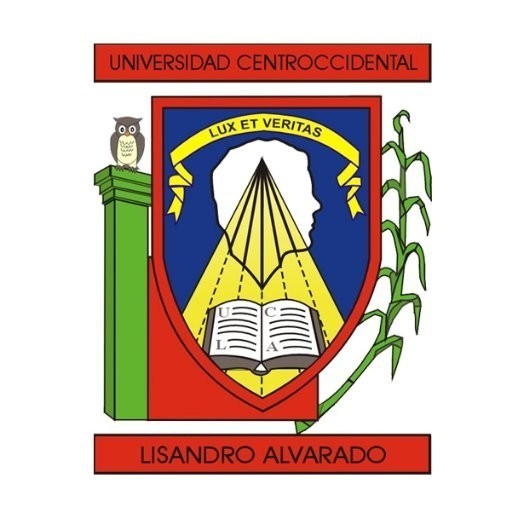Financial Engineering at Poznan University of Economics and Business is a comprehensive program designed to equip students with advanced knowledge and practical skills in the fields of finance, mathematics, and information technology. The program aims to prepare graduates for professional roles in financial institutions, investment banks, asset management companies, and risk management firms where sophisticated financial analysis and innovative financial solutions are essential. Throughout the course, students engage with a wide range of topics including quantitative modeling, financial markets, derivative pricing, risk management techniques, programming, and data analysis. The curriculum emphasizes a strong foundation in mathematical methods and computer skills, enabling students to develop complex financial models and algorithms. Students also gain an understanding of financial regulations and ethical considerations pertinent to the financial industry. The program combines theoretical instruction with practical training through case studies, simulations, and internships, fostering a hands-on approach that enhances employability. Graduates of the program will be capable of analyzing financial data, designing financial products, and developing strategies for investment and hedging. Additionally, the program supports the development of soft skills such as teamwork, communication, and critical thinking, essential for effective decision-making in dynamic financial environments. The teaching staff includes experienced academics and industry professionals committed to providing high-quality education aligned with current market needs. The program is suitable for students interested in a career at the intersection of finance, technology, and analytics, offering a pathway to roles such as financial analyst, quantitative analyst, risk manager, or financial consultant. With the rapid development of financial markets and technological advancements, graduates will be well-prepared to meet the challenges of modern finance and contribute to innovative financial solutions globally.
The Master's Degree Programme in Financial Engineering at Poznan University of Economics and Business offers a comprehensive curriculum designed to equip students with advanced knowledge and practical skills necessary for a successful career in finance. The program integrates principles of finance, mathematics, economics, and computer science to prepare graduates for roles in financial analysis, risk management, investment banking, and financial technology. Throughout the program, students delve into the theoretical foundations of financial markets, develop quantitative modeling skills, and gain hands-on experience with financial software and programming languages such as R, Python, and MATLAB. The curriculum includes courses on financial mathematics, derivatives pricing, portfolio optimization, financial econometrics, and computational finance, providing a solid understanding of complex financial instruments and market dynamics.
In addition to technical expertise, the program emphasizes the development of critical thinking, problem-solving, and decision-making skills. Students participate in case studies, simulations, and projects that reflect real-world financial scenarios, fostering practical application of their knowledge. The program also offers opportunities for internships and collaboration with financial institutions, enabling students to gain valuable industry experience and build professional networks. The faculty comprises experienced academics and industry professionals who bring practical insights and research-based teaching to the classroom.
Graduates of the Financial Engineering program are prepared for careers in financial institutions, consulting firms, regulatory agencies, and fintech companies. They are well-equipped with the analytical tools and strategic mindset needed to analyze financial data, manage financial risks, and develop innovative financial solutions. The program's international orientation and focus on current financial innovations ensure that students are prepared to meet the challenges of a rapidly evolving global financial landscape. Upon completion, students receive a Master of Science degree, opening doors to prestigious positions and further academic pursuits in finance or related fields.
Step 1
All candidates need to fill in an online application form on the PUEB website.
Step 2
After registration the CSE staff will send you an email with the description of the documents you need to submit. The email will be sent within 2 days after registration.
The required documents for Master programs:
• first degree termination diploma legalized or adjusted apostille;
• verified extract from student's registration book, including list of examination and credits or supplement for diploma;
• Certificate of English language skills – see list of language certificates below;
• Entrance Medical Record (a doctor’s certificate of no contraindications to study, in English or Polish);
• Proof of medical support (a copy of health insurance policy or European Health Insurance Card EHIC or declaration of entering the National Health Fund immediately after commencing education in Poland);
• copy of passport (page with photograph and passport number);
• confirmation of admission and tuition fee payment.
All students need to send scanned copies of the above mentioned documents together with a motivation letter which should include the following:
• clear goal and vision for the future
• why they think Poland, Poznan and PUEB are interesting and suitable for them
• why they think the program they have chosen is interesting
• their strongest qualifications.
The letter should not exceed 600 words.
Step 3
The documents are verified by the CSE staff. Depending on the amount of applications this can last up to 5 working days.
Step 4
If the candidate’s documents are accepted and the candidate meets all the formal requirements we will organize a Skype interview to talk about their interests, ideas for the future, their work experience and involvement in various additional activities. The interview is a chance for both the PUEB and the candidate to know each other better and to talk about their expectations and motivations.
Step 5
The candidate will be given the account number to which they should transfer the first semester fee. When we confirm the transfer we will issue the admission letter which will be used to apply for a visa.Other requirements:
Candidates should have basic knowledge of economics, mathematics and finance, in particular, basic knowledge of economic theory (basics of microeconomics and macroeconomics). The candidate should know the basics of accounting and financial mathematics (time value of money, the rules for calculating interest and discounting). In mathematics the candidate is expected to have knowledge related to the basics of linear algebra and calculus. Requirements:
• Knowledge of English
• Basics of calculus
• Basics of linear algebra
• Basics of financial mathematics (time-value of money)
Additional subjects
• Microeconomics
• Macroeconomics
• Basics of probability theory
The Financing programme at Poznan University of Economics and Business is designed to equip students with comprehensive knowledge and practical skills related to financial management, investment analysis, risk assessment, and financial markets. The curriculum emphasizes the development of analytical abilities necessary for making informed financial decisions in a dynamic economic environment. Students gain a solid understanding of financial instruments, banking systems, and the regulatory framework governing financial activities.
The programme includes courses in corporate finance, investment strategies, financial accounting, and econometrics, fostering a multidisciplinary approach to financial engineering. Emphasis is placed on mastering quantitative methods and the use of modern financial software which are essential tools for conducting valuation analyses, managing financial portfolios, and developing innovative financial products. The curriculum also incorporates modules on economic theory and financial law, providing students with a holistic perspective on the financial sector.
Students have access to state-of-the-art laboratories and participate in practical exercises such as case studies, simulations, and internships with financial institutions. This hands-on experience enhances their understanding of real-world financial challenges and prepares them for careers in banking, asset management, consultancy, or financial technology firms. The programme’s academic staff comprises experienced professors and industry practitioners who bring practical insights and academic rigor.
The financing aspect of the programme involves studies on financial planning, cost management, capital budgeting, and funding strategies for various businesses. Students learn how to analyze financial data, create detailed financial plans, and assess funding options like equity, debt, or alternative financing sources. The programme also highlights sustainable finance and responsible investing, addressing contemporary issues related to environmental, social, and governance (ESG) criteria.
Graduates from the Financing programme are well-prepared for professional roles requiring expertise in financial analysis, advisory services, and strategic planning. The programme collaborates with local and international financial institutions to ensure relevance and practical applicability of its content. Upon completion, students receive a recognized degree that opens doors to diverse employment opportunities within Poland and globally, in both private and public financial sectors.
The Financial Engineering program at Poznan University of Economics and Business is designed to equip students with comprehensive knowledge and practical skills in the field of finance, risk management, and mathematical modeling. This program combines principles from finance, economics, mathematics, and information technology to prepare graduates for a variety of careers in financial institutions, investment firms, and corporate sectors. Students are introduced to advanced financial theories, quantitative methods, and programming techniques necessary for analyzing financial markets and developing innovative financial solutions.
Throughout the course, students explore topics such as financial derivatives, portfolio optimization, financial risk management, quantitative analysis, and modeling. The program emphasizes the importance of analytical thinking, problem-solving, and proficiency in using modern financial software and programming languages like Python, R, and MATLAB. Practical exercises, case studies, and internships are integral parts of the curriculum to ensure students gain real-world experience and are well-prepared for professional challenges.
The program aims to foster strong mathematical and statistical skills, along with a deep understanding of financial markets and instruments. Graduates are equipped to work in investment banks, hedge funds, asset management companies, and financial consultancy firms, or to continue their academic pursuits at the postgraduate level. The interdisciplinary nature of the program promotes innovation and adaptability, which are crucial in the rapidly evolving financial industry.
The faculty members involved in the Financial Engineering program at Poznan University of Economics and Business are experienced professionals and academics with expertise in finance, quantitative methods, and technological applications. The university provides modern facilities, access to relevant financial databases, and strong connections with the industry, all of which support students' learning and career development. Upon completion of the program, graduates receive a Master's degree, opening doors to highly competitive positions in the financial sector both locally and internationally.







